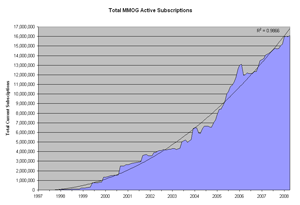
The tide has turned. People are switching from paying for a "pipe" (e.g., cable) to paying subscriptions for content available anywhere, like Netflix. And a new source of revenues is paying to participate. What's next?
On November 4, 2010, we learned that Netflix has a 20% share of prime time web traffic, causing some to speculate that internet usage isn't complementing traditional television viewership, but replacing it. Specifically, the Wall Street Journal reports that on-demand viewership of already aired primetime television shows are being watched online instead of on television during prime time. This makes sense when you consider the other not-widely-reported trend that young people who got used to watching TV on the internet during college aren't subscribing to cable when they graduate and move into an apartment. Acknowledging the shift, Fortune names Netflix CEO, Reed Hastings the #1 Businessperson of the year with 20 million subscribers and $150 million in net earnings on November 18, 2010, ranking him above #2 Ford CEO, Alan Mulally, #3 Steve Jobs and #4 Mark Zuckerberg. And on the same day, in the Financial Times, we learn that:
The number of people subscribing to US cable television services has suffered its biggest decline in 30 years as younger, tech-savvy viewers lead an exodus to web-based operations, such as Hulu and Netflix... with subscriber numbers falling by 741,000
While that reflects a shift of existing market dollars, there is a new source of revenue. On November 8, 2010, we learned that people paying a premium for Massively Multi-Player On-line Games (MMOGs) is a growing trend, revealing that the "no one will pay" believers have made an assumption based on what people say, but not what they will do.
After two years of ignoring digital trends to focus on retail sales declines in the video game market, Financial Times reporter Chris Nuttall reports ( "NPD, the official source for industry figures, has tended to ignore (digital) sales in the past as it has charted declines in hardware and software sales over the past two years."), attention is being paid to industry leaders, Activision Blizzard and Electronic Arts, digital sales increases: "Last week, Activision reported 15 percent growth in digital sales in the first nine months over 2009, while Electronic Arts, creator of the Medal of Honor game, reported 35 per cent growth over its past two quarters compared to the year before."
 This shift is not a surprise to Bruce Woodcock. He's been tracking MMOG subscriptions. As of 2008 they were 16 Million, quadrupling from about 4 Million in just 5 years since 2003. According to Bruce, NPD only just started tracking subscriptions in 2008.
This shift is not a surprise to Bruce Woodcock. He's been tracking MMOG subscriptions. As of 2008 they were 16 Million, quadrupling from about 4 Million in just 5 years since 2003. According to Bruce, NPD only just started tracking subscriptions in 2008.
The MMOG growth offers the most insight into the future because it suggests people will invest time and money to participate in new technology, not just passively watch a TV show or movie for less by eliminating the redundancy of both a cable and ISP subscription.
You may be tempted to interpret the demand in MMOGs as meaning that all content from news to books to video should be transformed into games. But do think bigger. Consider what digital buyers are getting, that they couldn't get at retail. Digital buys are subscribing to play with others. When they upgrade they are paying to improve their performance so they can play with the players they aspire to play like. Camaraderie is the "something" people value enough to pay for online.
The video game business has discovered what movie theaters, live sports and concert events have known for a long time. There is a reason beyond "content" and "technology" motivating people pay a huge premium to attend an event at a theater or stadium when they could watch the same event in the comfort of their home with friends and family.
Now that the industry is discovering that demand for community -- not a chaotic mass of people broadcasting themselves -- is strong enough to generate incremental revenues, the game has changed.